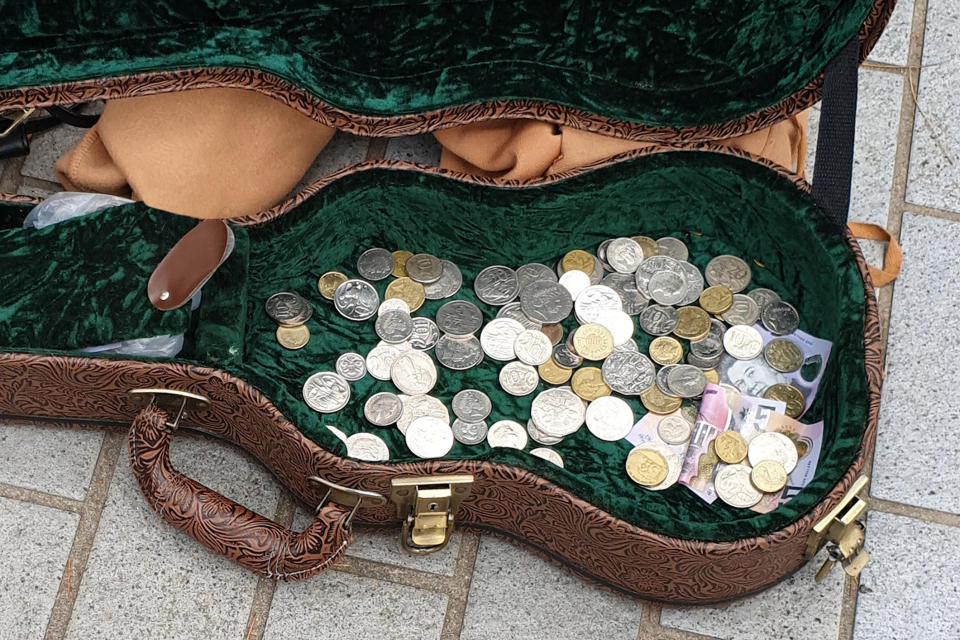How stock market crashes affect you even if you don’t have shares

Stock market tumbles in Australia and around the world have seen billions of dollars wiped out as investors spooked by the coronavirus pandemic panic-sell shares.
But even if you don’t own shares, you’re most likely still invested in the stock market – through your superannuation.
“Unless you made a conscious choice when you joined your super fund, you are probably in the default investment option, which means that approximately 50 per cent of your retirement savings are in Australian or overseas shares,” Canstar finance expert Steve Mickenbecker told Yahoo Finance.
“If the share market goes down, your retirement savings go down.”
Also read: Recession on its way: Here’s what it will look like in Australia
17 March: Aussie stocks roar 5.83% higher in best day since 1997
What does this mean for me?
Your nest-egg is likely smaller than it was a few weeks ago.
“If the share market falls 26 per cent, as it has, then your super balance has fallen by only say 13 per cent,” Mickenbecker said.
“At the same time your super fund may have received the benefit of earnings from company dividends, which haven’t lifted the share price but have lifted your superannuation return.”
How long will this crash last?
The short answer is, no one knows for sure. However, one thing that is certain is that stock market crashes aren’t uncommon, and before this crash happened several market experts were saying we were overdue for one anyway.
“The global financial crisis ten plus years ago is the best recent precedent for a severe share market shock,” said Mickenbecker.
Since the GFC hit, it has taken the Australian share market 12 years to climb back to its October 2007 pre-GFC peak, which it reached in June last year.
“We have only just reached the pre-GFC share market levels and now we have another crash to overcome.”
Should I pull my super out of shares?
Australians can take charge of their superannuation by choosing which superfund to be with as well as picking their investment option.
But experts across the board are advising against switching to a different investment option, as the market will almost certainly bounce back.
“One of the lessons we learned from the GFC is that individuals who changed their investments at the peak of the share market volatility essentially locked in their retirement savings losses,” Association of Superannuation Funds of Australia (ASFA) CEO Martin Fahy told Yahoo Finance.
“Those people ended up worse off over the long-term because they weren’t in a position to benefit from the share market recovery that inevitably followed.
“The global economy will bounce back on the other side of this health shock and Australians will capitalise on that recovery,” Fahy said.
Finder insights manager Graham Cooke added that investor sentiment towards the share market would likely change once a solution to the Covid-19 disease was created.
“While markets are very volatile right now, it could all change with news of a successful vaccine in the next couple of months. Several research teams from Australia, Ireland and Canada have all announced positive early results.”
If you’re a younger Australian…
Your best bet is to stick with your current investment option, said Cooke.
“Although it may feel counterintuitive, the best thing younger Aussies can do with their super right now, is nothing.
“If you’re in your 20s or 30s, you’re probably going to be working for the next 40–50 years. Your nest egg is much more likely to shrink over time if you panic and switch to a low-risk or defensive option.”
Moving your assets to a more ‘stable’ portfolio might give you some protection but it also means missing out on a potential market rebound.
“After a ten-year period, those who stuck it out with a high-growth option were thousands of dollars ahead of those who ‘played it safe’.
If you’re an older Australian…
The stock market hit has hit you harder than other Australians.
“For retirees and near-retirees it is not so good as they are living off their super or soon will be, before it recovers,” said Mickenbecker.
Ensure your portfolio is diverse, Cooke advised; you want to ensure your eggs aren’t all in one basket, or in any single company or sector.
Rappell also warned against switching to cash now.
“Older members are more likely to be in more conservative options, which have been less impacted. But, be careful if you consider switching to cash as you will be locking in the fall in performance.
“We suggest members talk to their fund or an adviser who they trust to help ensure any decision is aligned with a long term strategy.”
“In general, to reach retirement goals, you need some exposure to shares and shouldn’t get caught up in short term noise.”
Make your money work with Yahoo Finance’s daily newsletter. Sign up here and stay on top of the latest money, news and tech news.
Follow Yahoo Finance Australia on Facebook, Twitter, Instagram and LinkedIn.

 Yahoo Finance
Yahoo Finance 
